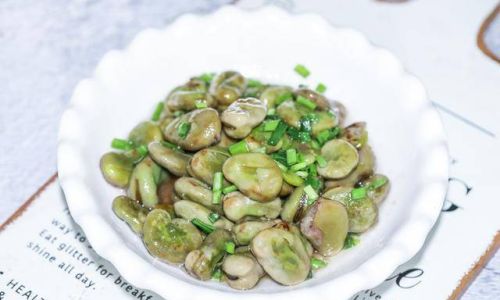Navigating a supermarket aisle can feel like a minefield, especially when health-conscious decisions clash with convenience and marketing claims. While many packaged foods promise ease, flavor, or cost savings, they often hide undesirable ingredients that compromise nutritional value. This article explores ten supermarket items nutritionists and food experts advise avoiding, along with practical alternatives to prioritize your well-being.
Processed Meats: Bacon, Sausages, and Deli Slices
Processed meats like bacon, hot dogs, and packaged deli slices are staples in many shopping carts, but their convenience comes at a cost. These products typically contain high levels of sodium, nitrates, and preservatives linked to increased risks of heart disease, colorectal cancer, and hypertension. The World Health Organization (WHO) classifies processed meats as Group 1 carcinogens, meaning they are proven to cause cancer.
Why Avoid:

- Sodium Overload: A single serving of deli ham can exceed 20% of your daily sodium intake.
- Nitrates: These additives extend shelf life but may form carcinogenic compounds when cooked at high temperatures.
- Low-Quality Cuts: Processed meats often use trimmings from various animal parts, reducing nutritional density.
Better Alternatives:
Opt for fresh, unprocessed meats like chicken breast, grass-fed beef, or turkey. For vegetarians, try plant-based alternatives like tempeh “bacon” or lentil patties.
Pre-Cut Fruits and Vegetables
Pre-cut produce seems like a time-saver, but it often sacrifices freshness and nutritional value. Exposed to air and light, chopped veggies and fruits lose vitamins (like C and B) rapidly. Additionally, these items are pricier than whole produce and may harbor bacteria due to improper handling.
Why Avoid:
- Nutrient Degradation: Vitamin C content in pre-cut spinach drops by 50% within six days.
- Bacterial Risks: Cross-contamination during packaging is a concern, especially for melons and leafy greens.
- Cost: You pay a premium for convenience—a 16-oz bag of pre-cut broccoli may cost twice as much as a whole head.
Better Alternatives:
Buy whole produce and chop it yourself. If time is tight, freeze portions for later use.
Canned Soups and “Ready-to-Eat” Meals
Canned soups and microwaveable meals are marketed as quick fixes, but they’re typically loaded with sodium, artificial flavors, and stabilizers. A single serving of canned tomato soup can contain over 1,000 mg of sodium—nearly half the daily recommended limit.
Why Avoid:
- Sodium Surplus: Excess sodium contributes to hypertension and kidney strain.
- Hidden Sugars: Many “cream-based” soups include added sugars to mask metallic canned flavors.
- BPA Liners: Some cans use bisphenol A (BPA), a chemical linked to hormonal disruptions.
Better Alternatives:
Make large batches of homemade soup and freeze portions. Look for low-sodium canned options or switch to shelf-stable pouches with fewer preservatives.
Sugary Breakfast Cereals
Brightly boxed cereals targeting children and adults alike often masquerade as “healthy” due to fortified vitamins. However, their sugar content—sometimes exceeding 15 grams per serving—outweighs any nutritional benefits.
Why Avoid:
- Blood Sugar Spikes: Refined grains and added sugars cause rapid energy crashes.
- Misleading Claims: Labels like “whole grain” may apply to just one ingredient, while the rest are processed.
- Artificial Dyes: Many cereals use synthetic colorants linked to hyperactivity in children.
Better Alternatives:
Choose oatmeal, chia pudding, or unsweetened yogurt with fresh berries. For cereal lovers, seek brands with ≤5 grams of sugar per serving and no artificial additives.

Bakery Section Treats (Pastries, Muffins, and Donuts)
Supermarket bakeries tempt shoppers with fresh-baked aromas, but these treats are typically made with refined flours, trans fats, and excessive sugars. A single blueberry muffin can pack 400+ calories and 20 grams of saturated fat.
Why Avoid:
- Trans Fats: Even “butter-flavored” products may contain partially hydrogenated oils.
- Empty Calories: High in calories but low in fiber, protein, or vitamins.
- Rapid Digestion: Refined carbs spike blood sugar, leaving you hungry soon after.
Better Alternatives:
Bake at home using whole-wheat flour, applesauce (to reduce fat), and natural sweeteners like honey. Store-bought alternatives include almond flour muffins or dark chocolate-covered strawberries.
Frozen Meals with Long Ingredient Lists
Frozen dinners promise a balanced meal in minutes, but their ingredient labels often read like chemistry experiments. Expect stabilizers, thickeners, and artificial flavors alongside questionably sourced proteins.
Why Avoid:
- Unpronounceable Additives: Ingredients like “disodium inosinate” and “carrageenan” offer no nutritional value.
- Portion Distortion: Many meals are calorie-controlled but lack vegetables or healthy fats.
- Sodium Traps: A single meal may contain 60–80% of your daily sodium allowance.
Better Alternatives:
Batch-cook meals like stir-fries, soups, or grain bowls and freeze individual portions. Look for frozen meals with ≤5 ingredients and no added sugars.
Flavored Yogurts (Especially “Light” Versions)
Yogurt markets itself as a health food, but flavored varieties—even “light” ones—are often sugar bombs. A 6-oz container of strawberry yogurt may have 20 grams of sugar, rivaling a candy bar.
Why Avoid:
- Added Sugars: “Light” versions replace fat with sugar or artificial sweeteners.
- Fake Flavors: “Fruit on the bottom” often uses concentrated purees, not fresh produce.
- Thin Consistency: Low-fat yogurts compensate with thickeners like carrageenan.
Better Alternatives:
Buy plain Greek yogurt and add fresh fruit, honey, or nuts. For dairy-free options, choose unsweetened coconut or almond yogurt.
Bottled Salad Dressings and Marinades
Bottled dressings like ranch or Caesar dressing are notorious for hidden sugars, unhealthy oils (soybean, canola), and artificial additives. A single tablespoon of ranch can contain 70 calories and 1 gram of sugar.

Why Avoid:
- Inflammatory Oils: Many use cheap, omega-6-heavy oils that promote inflammation.
- Emulsifiers: Ingredients like xanthan gum or polysorbate 80 may disrupt gut health.
- High Fructose Corn Syrup: Common in sweet dressings like Thousand Island.
Better Alternatives:
Make dressings at home with olive oil, vinegar, lemon, and herbs. For store-bought, seek brands with olive oil as the first ingredient and ≤2 grams of sugar per serving.
Generic Spices and Seasoning Blends
Budget spices might seem harmless, but they often contain fillers like flour, anti-caking agents, or even food coloring. Seasoning blends (e.g., taco mix) may include MSG, artificial flavors, and excessive salt.
Why Avoid:
- Hidden Allergens: Fillers can trigger sensitivities in some individuals.
- Quality Concerns: Cheap spices may lack potency, requiring more to achieve flavor.
- Preservatives: Blends often use silicon dioxide to prevent clumping.
Better Alternatives:
Buy whole spices and grind them yourself, or invest in reputable brands like McCormick or Simply Organic. Make seasoning blends using herbs, salt, and chili flakes.
Non-Organic Produce with High Pesticide Residue
The Environmental Working Group (EWG) identifies the “Dirty Dozen”—produce like strawberries, spinach, and nectarines—that test high for pesticide residues. While washing helps, some chemicals penetrate the skin.
Why Avoid:
- Pesticide Exposure: Linked to neurological and reproductive issues.
- Antibiotic Residues: Non-organic livestock may contribute to antibiotic-resistant bacteria.
- Environmental Impact: Pesticide runoff harms ecosystems.
Better Alternatives:
Prioritize organic for the Dirty Dozen. For budget-friendly options, buy conventional produce with thick skins (avocados, bananas) or grow herbs/greens at home.
Final Thoughts: Rethinking Convenience
Supermarkets thrive on convenience, but health-conscious shopping requires mindfulness. By avoiding processed meats, sugary cereals, and additive-laden products, you protect your body from empty calories and harmful chemicals. Small swaps—like whole produce over pre-cut or homemade dressings over bottled—add up to meaningful long-term benefits. Always read labels, question marketing claims, and remember: the freshest, least processed foods rarely need an ingredient list. Your future self will thank you.






0 comments